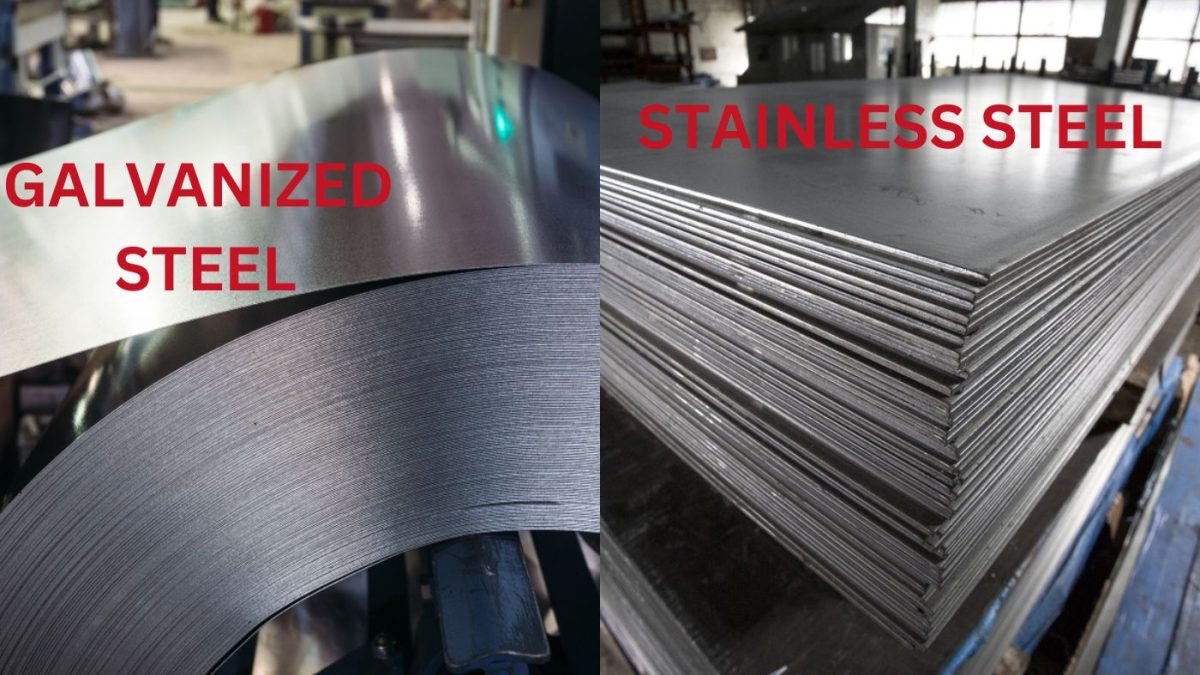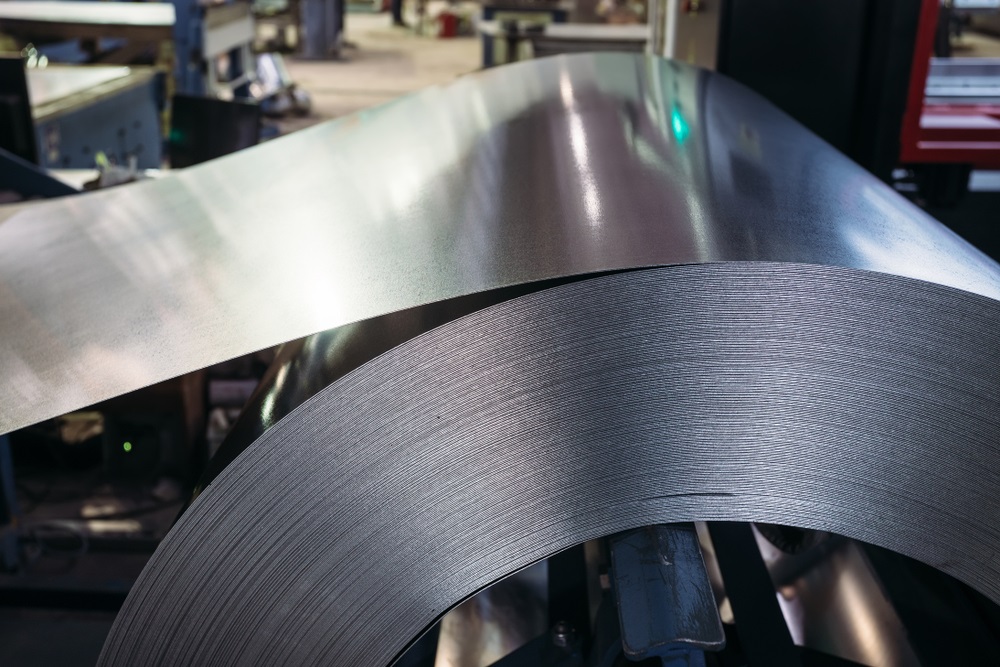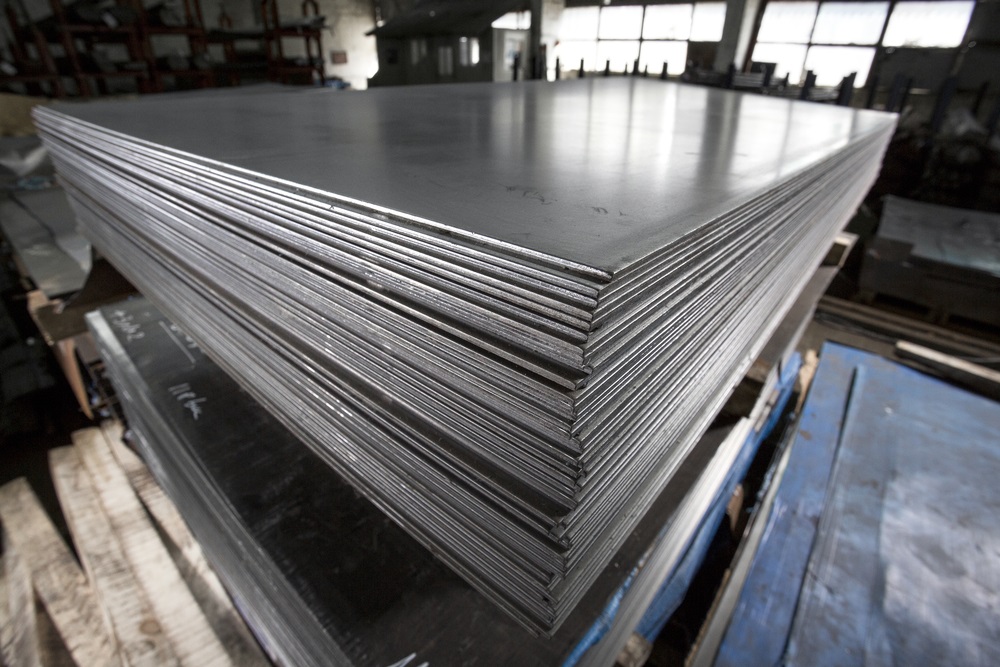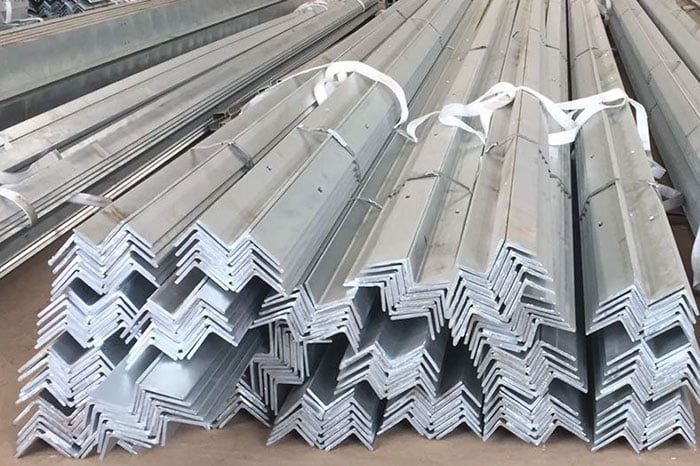Can We Recycle CAR BATTERIES?
May 26, 2023What Household Items Can I Recycle? 11 Best Picks
June 14, 2023GALVANIZED STEEL VS. STAINLESS STEEL
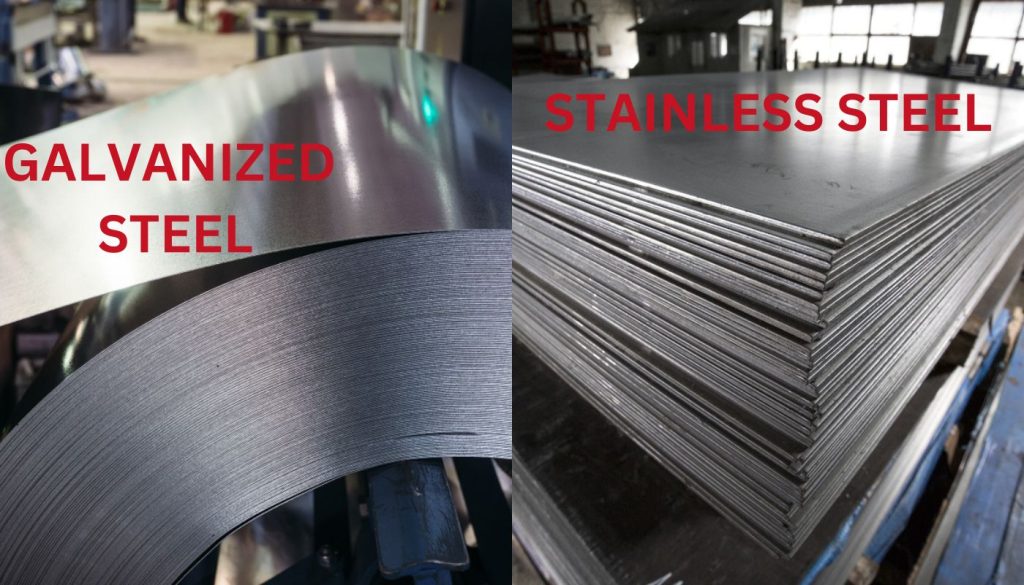
When it comes to choosing the right type of steel for your project, it’s essential to understand the differences between various options. Two commonly used steels are galvanised steel and stainless steel.
In this post, we will delve into the qualities, strengths, and applications of both galvanized steel and stainless steel. Answering the basic questions of “What is galvanised steel?” and “What is stainless steel?” By the end, you’ll have a clear understanding of which type is best suited for your specific needs.
What is Stainless Steel?
Stainless steel is a corrosion-resistant alloy that contains a minimum of 10.5% chromium. This composition forms a protective layer on the surface, known as a passive film, which prevents rust and corrosion. Stainless steel is available in various grades, each with its unique properties and applications. It is widely known for its durability, aesthetic appeal, and low maintenance requirements.
What Is Galvanized Steel?
The meaning of galvanised refers to the process of coating metal with a protective layer of zinc to prevent rusting. Galvanized steel is popular for its affordability, high strength, and resistance to impact and abrasion.
Galvanised steel is regular steel coated with a layer of zinc to protect it from corrosion. This process of hot dipped galvanised regular steel is called galvanization. It involves immersing the steel in a bath of molten zinc, which bonds with the steel to form a protective coating.
Difference Between Stainless Steel vs Galvanized Steel
To help you understand the dissimilarities between stainless steel and galvanised steel, let’s compare them side by side:
Features | Stainless Steel | Galvanized Steel |
Corrosion Resistance | High | Moderate |
Strength | High | High |
Weight | Relatively Heavy | Relatively Light |
Malleability | Moderate | High |
Thermal Conductivity | Low | High |
Weldability | Yes | Yes, but the risk of toxicity |
Magnetic | Generally, Not | No |
Food Container | Excellent | Limited |
Medical Use | Widely Used | Limited |
Cost | Higher | Lower |
Galvanised Steel vs. Stainless Steel || A Comprehensive Comparison
Is Galvanized Steel Corrosion Resistant Like Stainless Steel?
Let’s analyse the most asked question “Will galvanised steel rust over time?” Hot dip galvanized steel in a bath of molten zinc, while providing moderate corrosion resistance, may eventually corrode over time, especially if the zinc coating is compromised.
While both galvanised steel and stainless steel offer corrosion resistance, stainless steel provides a higher level of protection. The passive film on stainless steel prevents rust and corrosion even in harsh environments, making it ideal for outdoor applications, such as construction and marine industries.
Which Is Stronger: Galvanized or Stainless Steel?
Both galvanized steel and stainless steel exhibit high strength. Stainless steel, in particular, is renowned for its exceptional strength and durability. It can withstand extreme temperatures and harsh conditions without compromising its structural integrity. Regular steel galvanised, although strong, may not be as resilient as stainless steel in certain demanding applications.
Is Stainless Steel Heavier Than Galvanized Steel?
Stainless steel is generally heavier than galvanised steel. The added weight of stainless steel is due to its higher density and additional alloying elements. However, the weight difference may vary depending on the specific grades and thicknesses of the steel being compared. It’s crucial to consider the weight factor of galvanised steel vs stainless steel when selecting the appropriate material for your project, especially in applications where weight plays a significant role.
How Malleable Are Stainless Steel & Galvanized Steel?
Using galvanised vs stainless steel differ in terms of malleability. Stainless steel has moderate malleability, meaning it can be shaped and formed to a certain extent. However, it may require specialized tools and techniques to manipulate it. On the other hand, galvanised steel is highly malleable, making it easier to bend, roll, or shape without the need for extensive equipment.
How Well Do Stainless Steel & Galvanized Steel Conduct Heat?
Stainless steel has low thermal conductivity, meaning it is a poor conductor of heat. This property makes stainless steel an excellent choice for applications where temperature control is essential, such as kitchen appliances.
In contrast, galvanised metal steel has high thermal conductivity, allowing it to efficiently transfer heat. This characteristic makes galvanized steel suitable for applications that require heat dissipation, such as HVAC systems and heat exchangers.
Can You Weld Stainless Steel and Galvanized Steel?
Both stainless steel and galvanized steel can be welded, but the process differs slightly. Welding stainless steel requires specialized techniques and equipment due to its high melting point and low thermal conductivity. Galvanized steel can be welded using conventional welding methods.
Moving on, let’s explain “Can you weld galvanized to steel?” Welding galvanised steel to regular steel is possible, but it requires precautions due to the potential health risks associated with the release of toxic fumes.
Also, it is important to take precautions during the welding process to prevent damage to the zinc coating. This is achieved by removing the zinc coating from the area to be welded.
Are Stainless Steel or Galvanized Steel Magnetic?
Stainless steel is generally non-magnetic, although some specific grades may exhibit magnetic properties. Galvanized steel, on the other hand, is not magnetic. The magnetism of stainless steel depends on its chemical composition, while galvanised steel remains non-magnetic due to the presence of the zinc coating.
Is Stainless Steel or Galvanized Steel Better for Food Service?
Stainless steel is widely regarded as the preferred choice for food service applications. Its non-reactive and hygienic surface makes it resistant to staining, corrosion, and bacterial growth. Additionally, stainless steel is easy to clean and maintain, ensuring food safety and preventing contamination.
Galvanized steel, while corrosion-resistant, may not meet the stringent requirements of food service due to the possibility of zinc leaching into food under certain conditions. However, galvanized tubs are used as decorative ice buckets at outdoor parties.
Additionally, galv rainwater tanks are commonly used for rainwater harvesting and serve as a water storage solution for residential, commercial, or industrial properties. They collect and store rainwater that can be used for various purposes such as irrigation, gardening, and livestock watering.
Is Galvanized Steel or Stainless Steel More Popular for Medical Use?
In the medical field, stainless steel is extensively used due to its biocompatibility and sterilization properties. It is commonly found in surgical instruments, medical implants, and diagnostic equipment. Galvanized plate, on the other hand, has limited applications in the medical sector due to concerns about potential zinc toxicity and the need for high sterilization standards.
Does Stainless Steel Cost More Than Galvanized Steel?
Stainless steel typically costs more than galvanised steel. The higher price of stainless steel is justified by its superior corrosion resistance, strength, and aesthetic appeal. Galvanized steel offers an affordable alternative for projects that do not require the same level of corrosion resistance or longevity.
What is DuraGal Steel?
Now you may also ask “What is duragal?” Let’s explore this type as well. Duragal is a brand name for a type of galvanized steel made from low-carbon structural steel. The steel product is treated with a zinc alloy coating to protect against corrosion. Duragal steel is commonly used in construction, fabrication, and various industrial applications.
Common Uses for Stainless Steel
Stainless steel finds its application in various industries and sectors, including:
- Construction: Structural components, facades, and decorative elements.
- Automotive: Exhaust systems, body panels, and trim.
- Food Processing: Kitchen equipment, appliances, and utensils.
- Medical: Surgical instruments, implants, and diagnostic equipment.
- Aerospace: Aircraft components and equipment.
Common Uses for Galvanized Steel
Coming to the answer to “What is galvanize steel used for?” Galvanized steel is prevalent in a wide range of applications, including:
- Construction: Roofing, fencing, and structural supports.
- Transportation: Automobile frames, trailers, and guardrails.
- Agriculture: Galvanized tubs as planters in gardens, for storing and transporting water on farms and animal enclosures.
- Electrical: Power distribution equipment and electrical enclosures.
- Infrastructure: Bridges, utility poles, and highway blocks.
Which Is Best for Your Needs?
Choosing between galvanised steel and stainless steel depends on the specific requirements of your project. If corrosion resistance, aesthetics, and long-term durability are paramount, stainless steel is the ideal choice. However, if affordability, strength, and moderate corrosion resistance are your primary concerns, galvanised metal steel provides a cost-effective solution.
Ready To Find The Perfect Steel For Your Project?
In the battle of galvanized steel vs. stainless steel, both materials have their strengths and areas of application. Stainless steel boasts superior corrosion resistance and durability, making it suitable for demanding environments. Galvanized steel, on the other hand, offers affordability and high strength for various applications.
Now you are aware of the basic meaning of galvanised steel and stainless steel. When making your decision, consider factors such as the environment, project requirements, budget, and specific industry standards. By carefully weighing these factors, you can determine whether galvanised steel or stainless steel is the best fit for your needs.
Choose the steel that aligns with your project’s requirements and ensures long-lasting performance. Contact us today for expert advice on galvanised plate and high-quality steel solutions tailored to your needs.

